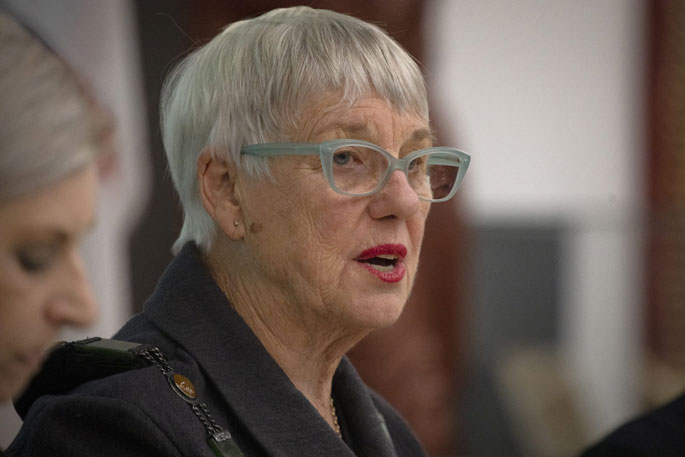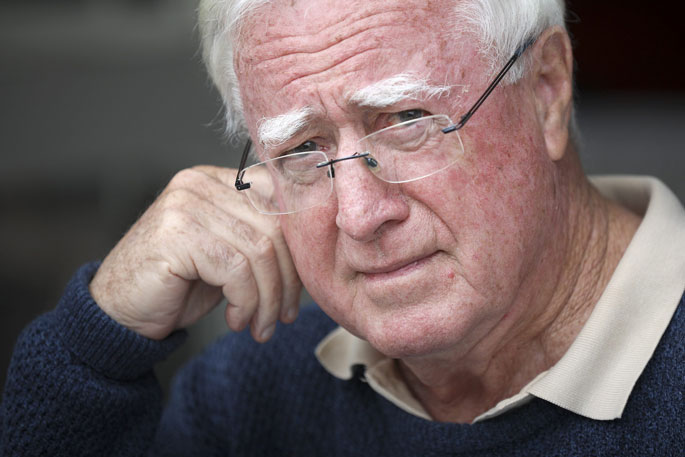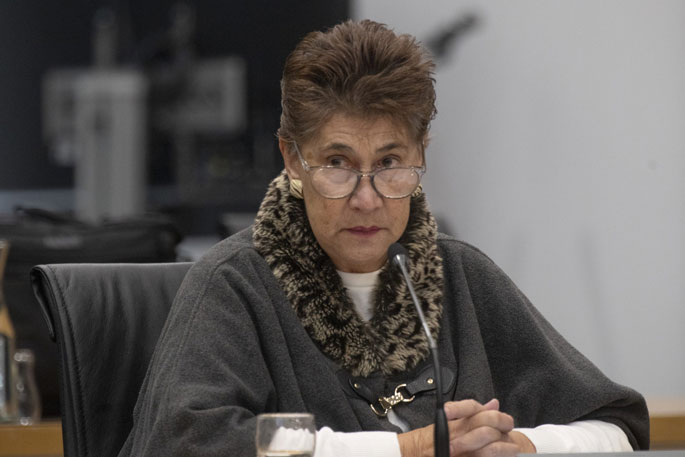A Rotorua district councillor believes the Local Government Commission decision overturning the council's governance model is 'plainly ridiculous”, while others have welcomed it.
Rotorua's mayor says the decision makes it 'now even more important” a bill to change electoral rules for Rotorua passes.
The commission says its reasoning is detailed in its determination, which was released on Friday.
In it, the commission rejected Rotorua Lakes Council's model, which had one Māori ward seat, one general ward seat and eight at large seats.
Instead, the commission decided the council would have three Māori ward seats, six general ward seats and one rural ward seat.
Councillor Merepeka Raukawa-Tait said, in her opinion, either the commission 'didn't understand the issues or thought Rotorua voters couldn't care less about not using their maximum number of votes”.
She said, in her view, the decision was 'plainly ridiculous”.
"What a bloody mess. The new rural ward, that will also take in some of the Lakes community, get only one vote out of 10 for councillors.
"Those on the Māori roll get three votes for the Māori ward out of 10 for councillors, and those on the general electoral roll get six votes for the [general] ward out of 10.
"The rural voters are flushing nine potential votes down the toilet, Māori voters seven, and those on the general roll four votes.
Her opinion of the decision was: "Dumber than dumb comes to mind."
Rotorua mayor Steve Chadwick was also dissatisfied with the commission's decision.
 Rotorua mayor Steve Chadwick. Photo / Andrew Warner / Rotorua Daily Post.
Rotorua mayor Steve Chadwick. Photo / Andrew Warner / Rotorua Daily Post.
She said, at first glance, the commission's determination seemed to 'deliver more inequities and anomalies than actually solve anything”.
She shared some of Raukawa-Tait's concerns, saying it appeared to 'disadvantage” rural ward voters because it only allowed them two votes – one for the rural ward councillor and one for the mayor.
She also highlighted that Māori roll voters would have four votes while general roll voters would have seven.
She said the decision did not address the issues the council was seeking to resolve through its local bill.
'It's now even more important that we see this bill come into force.”
The local bill is the Rotorua District Council (Representation Arrangements) Bill, which passed its first reading in Parliament on Wednesday evening.
The bill, which would allow the council's preferred – but currently unlawful - model with three Māori ward seats, three general ward seats and four at large seats, is now before the Māori Affairs select committee and open to public submissions until April 20.
Rotorua Residents and Ratepayers chairman and sitting councillor Reynold Macpherson was one of the appellants of the council's decision to the Local Government Commission.
 Rotorua district councillor and Rotorua Residents and Ratepayers chairman Reynold Macpherson. Photo / Andrew Warner / Rotorua Daily Post.
Rotorua district councillor and Rotorua Residents and Ratepayers chairman Reynold Macpherson. Photo / Andrew Warner / Rotorua Daily Post.
Macpherson said the group applauded the Commission's decision because it was 'based on democratic principles” and the Local Electoral Act, 'without reference to Te Tiriti or Fenton [Agreement] ‘obligations'”.
He said the commission 'rejected the council's interim co-governance model in favour of proportional representation”.
"The danger now is that the local bill ... could take Rotorua back to [the] council's ideal co-governance model, unless it is withdrawn, defeated or fails to make the 1 June deadline.”
He urged residents and ratepayers to make a submission to the select committee and 'ask to be heard”.
'Please oppose voter parity across wards because it will give citizens on the Māori roll 260 per cent more voting power than those on the general roll.
'Please ask for equal suffrage for all citizens – one person, one vote, one value – and proportional representation from wards.”
Neither the council nor the mayor wished to respond to Macpherson's comments about the local bill.
Last week, Te Tatau O Te Arawa's Jude Pani, Federated Farmers' Colin Guyton and Rotorua Rural Community Board chairwoman Shirley Trumper heralded the Commission's decision as a win for Te Arawa and rural communities.
Local Government Commission chief executive Penny Langley said the Commission's reasoning for its decision was set out in its determination.
In it, the commission stated it had 'serious doubts” whether a single member could 'effectively represent” either the Māori or general wards, and was concerned it would dissuade potential candidates.
The commission acknowledged the "spirit" of the council's proposal in "seeking to achieve parity in voting opportunity" but said "an even spread of voter opportunity across the various wards of a representation model is not a factor to be considered under the [Local Electoral] Act."
It also found there was a 'clear rural community of interest”.
"We are satisfied that a single-member rural ward will result in more effective representation for the rural community."
The commission rejected the concept that the models put forward by the council "could be described as gerrymandering" or that they violated equal suffrage.
"Councils around the country adopt a range of representation models, many of which result in different numbers of votes for different electors, depending on the ward in which they reside and/or the electoral roll they are enrolled on.
"Every elector still has an equal opportunity to cast their vote in the election, even if other electors for the same council have an opportunity to cast a different number of votes."
-Local Democracy Reporting is Public Interest Journalism funded through NZ On Air




3 comments
Breaches Universal Declaration of Human Rights
Posted on 13-04-2022 12:05 | By jed
Universal Declaration of Human Rights says people should have equal rights when voting. The Rotorua changes mean that maori now have superior voting rights over non-maori. Imagine if we made a law that said women only have half the voting power of men!! This is straight from George Orwell's "Animal Farm", all animals are equal except some are 'more equal' than others.
Simple principle.
Posted on 13-04-2022 14:14 | By morepork
There are 2 things that must be in place: 1. ALL votes have equal weight and no vote is worth "more" than any other vote. ONE person gets ONE vote. 2. Members are ELECTED by the public and APPOINTMENTS can only be made as a temporary measure, when special skills are required for something affecting the community. It looks like the current proposal doesn't meet those criteria, and so there is going to be dissension over it.
Morepork and Jed
Posted on 14-04-2022 12:55 | By Let's get real
Are absolutely correct. I have suggested before that the scrapping of the ward system and opening everything up to public scrutiny would result in the very best outcome for the city. If Maori put up candidates and block-vote for their candidates that would be perfectly acceptable from my point of view. What are they frightened of... Democracy...?
Leave a Comment
You must be logged in to make a comment.